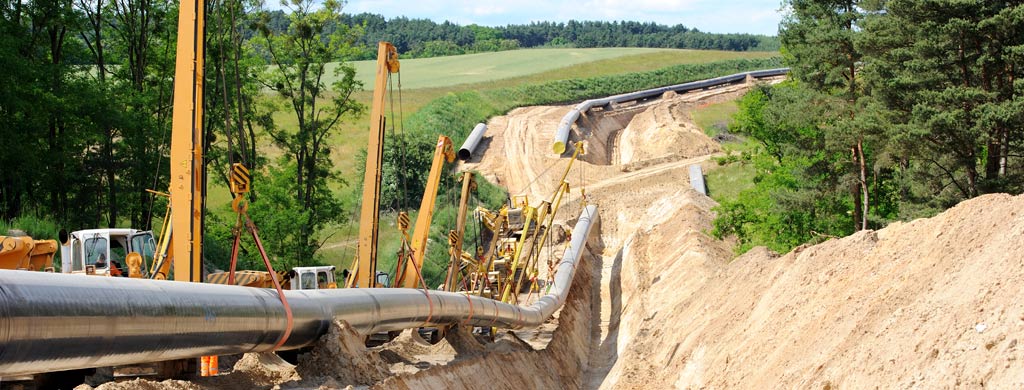Information events along the pipeline route – EUGAL closes supply gaps
Kassel. The new EUGAL pipeline project will enhance energy supplies in Germany and Europe. In just four years’ time, EUGAL is expected to supply gas within Germany and to Poland, but above all to Southeastern Europe. The roughly 485-kilometer natural gas pipeline will run from the Baltic Sea through Mecklenburg-West Pomerania, Brandenburg and Saxony to the German-Czech border. Mecklenburg-West Pomerania will also be home to a new receiving station in Lubmin, where gas arriving from the Nord Stream 2 pipeline will be processed for its continued transport via EUGAL and the European long-distance gas pipeline network.
The project is managed by Kassel-based transmission system operator GASCADE. “As a potential new neighbor, it’s important for us to introduce ourselves in person and hear what is on the mind of people in the area. After all, a pipeline project like EUGAL is a shared task,” explains Ludger Hümbs, the EUGAL Chief Project Manager. “People, nature and safety in planning, construction and operation have top priority for us.”
The information events, which start in mid-November (see schedule) will give people living along the potential pipeline routes the opportunity to learn more about past and future plan details as well as the project itself.
At this point, the government agency responsible for such projects in Mecklenburg-West Pomerania has approved the preferred EUGAL route as well as potential alternatives as part of its impact assessment. The plan approval procedure, in which the final route will be determined under consideration of public comments, will commence in mid-2017. The process will culminate in the agency's official planning approval decision. This will be followed by the actual construction of the pipeline, which is expected to run along two parallel routes in Saxony. The first section will go into operation by the end of 2019. The second section will be completed one year later.
“With EUGAL, we’ll plug gaps in supply and transport capacities which are quite significant in some cases,” states Hümbs. Whereas natural gas demand in Europe will keep rising slightly through 2035, domestic European production will fall sharply according to the 2015 European Network Development Plan. As a result, Europe faces a growing import gap of around 170 billion m³ of natural gas a year. The long-term need for transport capacities between Germany and its neighbors also exceeds currently available capacities to a considerable extent in some cases, as indicated by the more capacity market survey (www.more-capacity.eu) conducted to ascertain future demand.
Information about the EUGAL project is available on the internet at www.eugal.de.
Schedule of information events for the EUGAL project in Mecklenburg-West Pomerania
We will be available to provide information from 4 p.m. until 7 p.m. at these events:
Lubmin
14 November 2016
Kurverwaltung Seebad Lubmin, Großer Saal, Freester Str. 8, 17509 Seebad Lubmin
Anklam
15 November 2016
Regionale Schule “Käthe Kollwitz”, Aula, Baustr. 56 - 58, 17389 Anklam
Pasewalk
21 November 2016
Kulturforum Historisches U, An der Kürassierkaserne 9, 17309 Pasewalk
You do not need to register in advance to attend any of these events.

